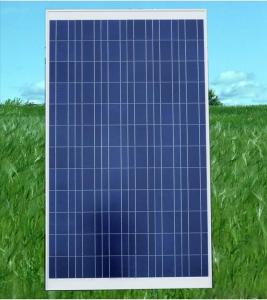Solar panels have been a hot topic in the residential energy market for quite some time now. They’re not only a great way to reduce your carbon footprint, but they can also save you a significant amount of money on your energy bills. But, as with any investment, it’s important to understand the costs involved before making the leap. Let’s dive into a cost analysis of solar panels for residential homes, breaking down the numbers and exploring the financial benefits and potential savings.
The Initial Outlay
The first thing to consider is the initial cost of purchasing and installing solar panels. This can vary greatly depending on the size of your home, the amount of sunlight your location receives, and the type of solar panels you choose. On average, the cost of solar panels for a residential home ranges from $15,000 to $25,000 before any tax credits or rebates. This might seem like a hefty price tag, but it’s important to remember that this is a one-time cost that can lead to long-term savings.
Tax Credits and Incentives
One of the biggest factors that can reduce the upfront cost of solar panels is the availability of tax credits and incentives. The federal government offers a tax credit for 26% of the cost of solar panel systems installed in 2022, which begins to phase down in the following years. Additionally, many states and local governments offer their own incentives, which can significantly lower the initial cost. It’s worth doing some research to see what’s available in your area.
Maintenance and Repair Costs
Solar panels are known for their low maintenance requirements, but they’re not entirely maintenance-free. You’ll need to factor in the occasional cleaning and potential repair costs. Cleaning can be done by hand or with a solar panel cleaning service, which can cost anywhere from $50 to $150 per cleaning, depending on the size of your system. Repair costs are relatively rare, but it’s good to be prepared for any unexpected issues that may arise.
Energy Production and Savings
The real payoff from solar panels comes in the form of energy savings. Depending on the size of your solar panel system and your energy consumption habits, you could see a significant reduction in your monthly energy bills. On average, homeowners can save around $1,000 per year on their energy costs with solar panels. Over time, these savings can add up to a substantial amount, making your initial investment well worth it.
The Environmental Impact
While the financial benefits are a major draw, don’t forget about the environmental impact of solar panels. By generating clean, renewable energy, you’re helping to reduce your carbon footprint and combat climate change. This is a powerful motivator for many homeowners who are looking to make a positive impact on the environment.
The Long-Term Perspective
When considering the cost of solar panels, it’s crucial to take a long-term view. The panels themselves have a lifespan of 25-30 years, and over that time, the savings on energy costs can far outweigh the initial investment. Additionally, as technology advances, the efficiency of solar panels is only expected to improve, leading to even greater savings in the future.
Financing Options
For those who may not have the upfront capital to invest in solar panels, there are financing options available. Solar loans, leases, and power purchase agreements (PPAs) can make solar panel installation more accessible. These options can help you start saving on energy costs right away, without the need for a large initial outlay.
The Bottom Line
In conclusion, the cost analysis of solar panels for residential homes is a multifaceted topic. While the initial investment can be substantial, the long-term savings, environmental benefits, and availability of tax credits and incentives make solar panels an attractive option for many homeowners. It’s important to do your research, understand the costs involved, and consider your specific situation before making a decision. But, for those who are ready to make the switch, the benefits of solar energy can be well worth the investment.

